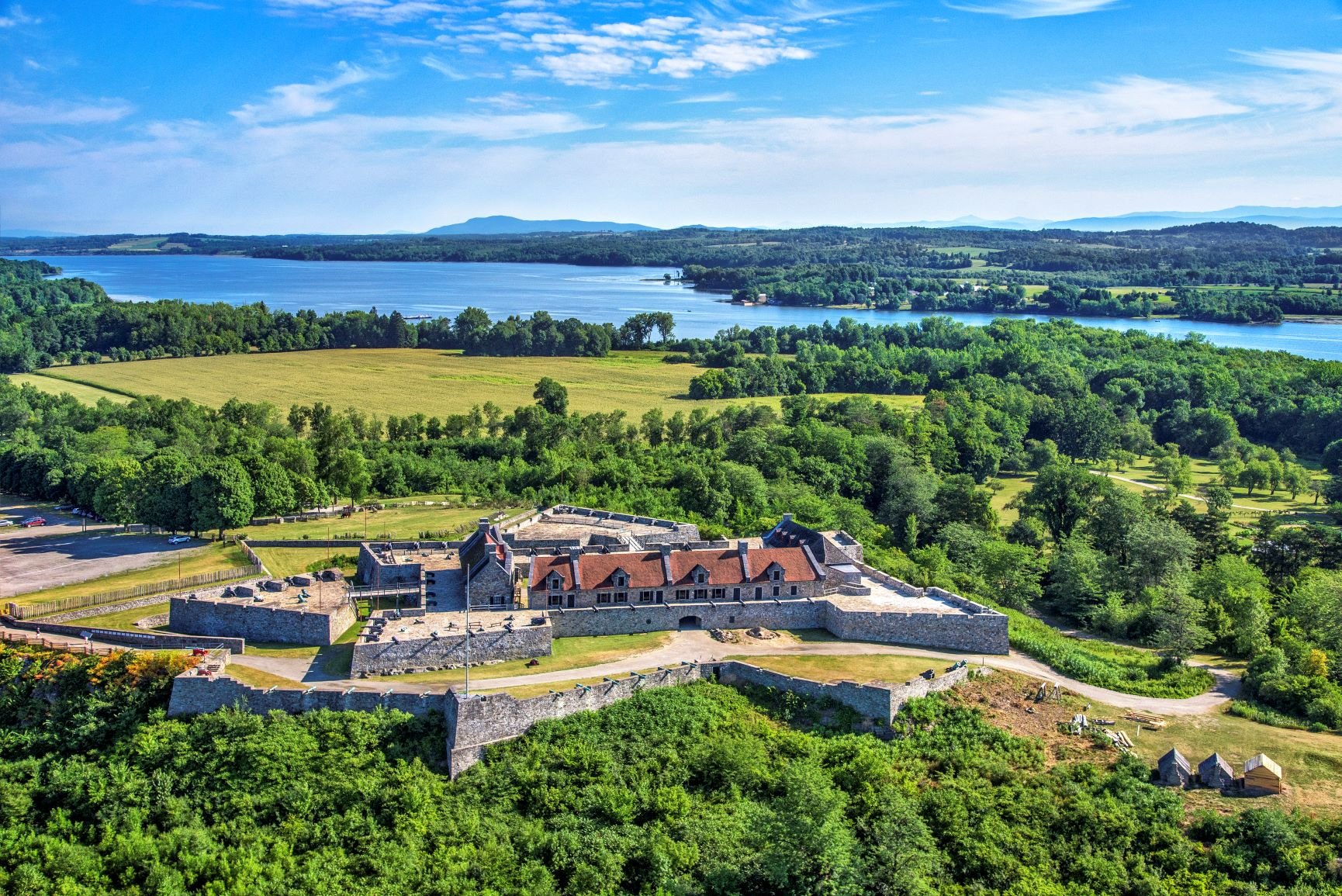Did you know? Lake Champlain was a Great Lake. For 18 days.
Lake Champlain on the Adirondacks northeastern border.
It all started innocently enough. In 1998, Vermont US Senator Patrick Leahy sought to secure funding via a program within the US Department of Commerce that provided federal coastal and aquatic research grants.
By declaring Lake Champlain a Great Lake, Senator Leahy saw an opportunity to make his land-locked state eligible to host a Sea Grant office. All it took was a minor edit to an appropriations bill. It escaped notice, and the bill passed on a voice vote and was signed by President Bill Clinton on March 7, 1998.
Obviously, Lake Champlain can't hold a candle to the breadth and depth of the five great lakes -- Huron, Ontario, Michigan, Erie, and Superior (tip: want to remember the names? Use the mnemonic HOMES).
Maybe not biggest in size, but huge in American history.
What Champlain lacks in size, it makes up for in importance to American history. For over 150 years, it played a significant role in trade between Canada and colonial America and was pivotal in the revolutionary war.
Fort Ticonderoga was the site of many instrumental battles in pre-revolutionary and revolutionary wartimes.
Nevertheless, midwesterners went apeshit when they learned about Lake Champlain's designation as a Great Lake. And perhaps rightfully so given its size. By almost all geographic measures, the idea of Champlain as a Great Lake is absurd. Champlain is about half the length of the shortest of the Great Lakes.
Interestingly, the controversy was more about pride and not about the money associated with hosting a Sea Grant office. The dispute was resolved quickly, with Lake Champlain being stripped of Great Lake status but retaining a Sea Grant office.
Ironically, adding Lake Champlain to Sea Grant strengthened the program. Lake Champlain serves as a microcosm of the Great Lakes for researchers. They can conduct experiments to identify impediments to lake trout reproduction, enhance management of parasitic sea lamprey, and detect sources of microplastics that contaminate the environment and accumulate in the bodies of fish and other animals. These same challenges face the Great Lakes, but research can often be conducted more efficiently on the smaller Champlain.
So, perhaps it comes down to a matter of size. It's not the length or breadth of the lake that matters but the magic in it.
Want to know more? Here are some great resources:
WHY ISN'T LAKE CHAMPLAIN' GREAT'?
When Lake Champlain Became A Great Lake… For 18 Days


